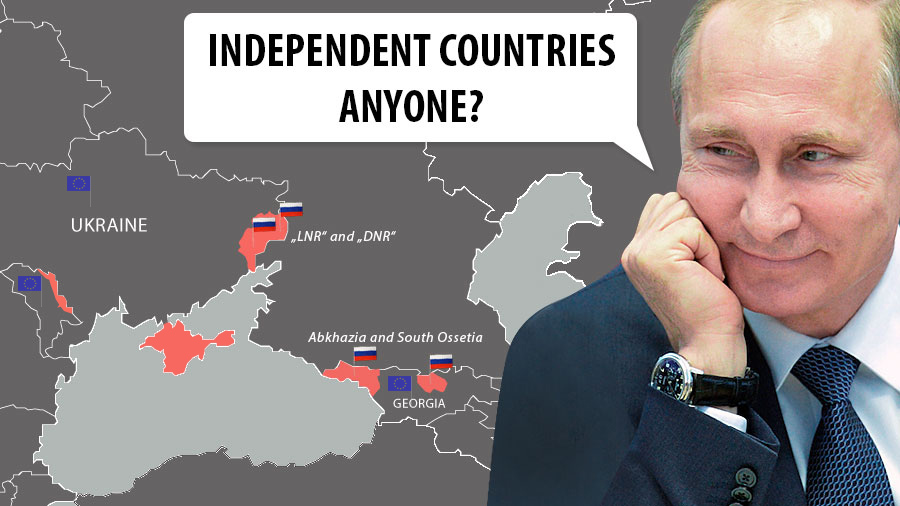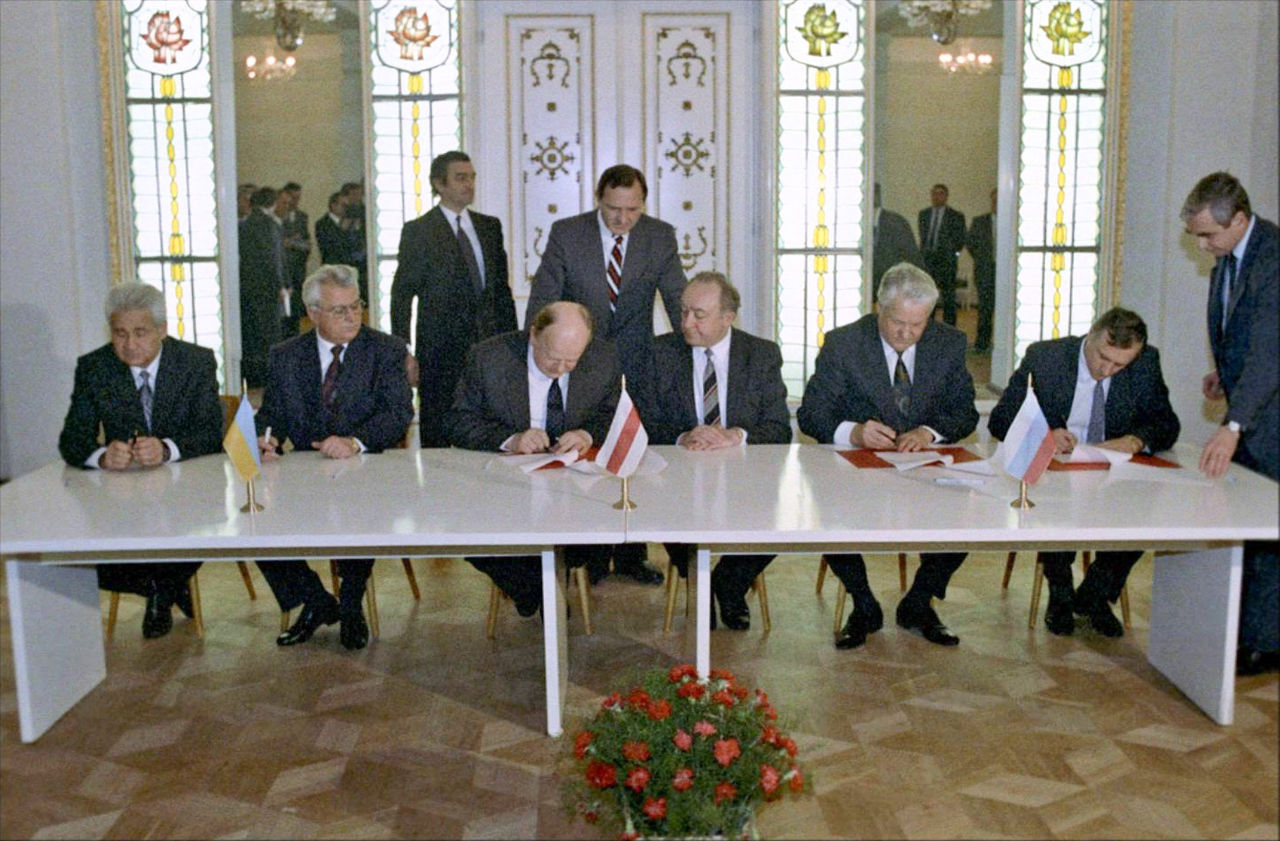Moscow believes that it will be able to “completely assimilate the nationalities of Russia” in this century by forcing them to use Russian rather than their national languages and to define themselves as members of a civic Russian nation, Tatar analyst Nail Gyylman says.
But it is in for a rude surprise in a double sense, he argues. On the one hand, this policy will have a negative impact on ethnic Russians, further deracinating them and leading to their being assimilated by others and disintegration into a variety of Russian-speaking nations at odds with one another.
And on the other, the process of destroying the linguistic and cultural roots of non-Russians will lead to their demographic decline just as it did to the ethnic Russians in Soviet times when Moscow after World War II dispatched many of them to the union republics rather than investing in them and their regions.
As Gyylman documents in his 4500-word, three-part article, that the Soviet policies of Russification sent Russian birthrates plummeting in ethnic Russian areas while for Russians living in the non-Russian republics a more stable ethnic environment, albeit not their own, meant that their growth rate was much higher and closer to non-Russian norms (for the full article in Russian, see Наил Гыйлман "Национальная политика ХХ века и демография": Part 1, Part 2
and Part 3).
His research allows him to provide an answer to a question that is agitating Russians and non-Russians alike at the present time: “Can the ethnic Russians completely assimilate the national minorities of Russia?” Moscow and the advocates of a civic Russian nation are sure that they can, but as Gyylman shows, they are almost certainly wrong.
Moscow likes to says that the ethnic Russians form 81 percent of the population of the Russian Federation, twenty times more than the largest non-Russian nation, the Tatars. But that statement is not true, the analyst says.
First of all, “the share of ethnic Russians in the Russian Federation has been exaggerated and is not 81 percent of even 83 percent, but about 75 percent. And if one includes immigrants, the share of ethnic Russians is about 70 percent.” That is a big difference: It means that ethnic Russians are not 4.3 times greater than non-Russians but only 2.3 times larger.
That means, of course, that “the process of assimilation will be a two-way street,” with ethnic Russians assimilating to non-Russian nations right alongside non-Russians assimilating to the Russians.
And second, “in the Russian Federation, more than half (about 55 percent) of ethnic Russians live in their historical areas of the center and northwest of the country and in two regions of the south, Krasnodar Kray and Rostov Oblast. Together, these amount to approximately 10 percent of the territory of Russia.
And that means that in the rest of the Russian Federation, the other 90 percent territorially, the relationship between Russians and non-Russians already is not 2.3 to one but on average about 1.5 to one. “And among younger generations the difference is still smaller and is continuously falling.”
“By the middle of the 21st century, on most of the territory of the Russian Federation, this relationship will be on average close to one to one …” And many of the nominally ethnic Russians will instead be people with different roots like the Cossacks and Pomors
who will reemerge as a result.
According to Gyylman, “the Russian language dominates and will continue to be the global language across the former USSR.” But just as Arabic, French and English languages don’t define nations or state membership, neither does nor will Russian.
During the Soviet period, Moscow destroyed the historical and social milieu and traditions of the ethnic Russians, and this destruction “continues.” As a result, “cut off from its roots and losing their ethnicity,” ever more young people turn to other stronger cultures and show their willingness to live somewhere other than Russia.
Thus, Gyylman says, “Russification, the mixing and combining into Russians of tens of millions of people from other indigenous peoples and immigrants will lead to the blurring of Russian identity, the loss of their unity, and their loss as a nation. A Russian-speaking mass with weak national self-confidence and identity will take its place.”
“In the megalopolises, global identity will predominate. In the majority of republics and many ‘Russian’ oblasts, in which the share of ethnic Russians is less than two-thirds, two-way assimilation will take place;” and some of these groups will become their own “political nations.”
This will happen, he says, “regardless of the status of the regions or the desires of the federal or local elites.” They may be able to slow or speed up this process, but they are powerless to prevent it from continuing to occur.
At present, many in the ruling elite and in both the systemic and extra-systemic opposition actively support “a return to the former imperial model of the state without national autonomies or federalism.” But those who support that idea fail to note that such a model didn’t prevent the Russian Empire from collapsing.
“The policy directed at the accelerated assimilation of the peoples of the USSR and the formation of a single Soviet people on the basis of the ethnic Russian people and the Russian language as conducted from the 1950s to the 1980s led to contradictory results. Beyond doubt, an analogous policy now will lead to equally different results than Moscow strategists expect.”
Read More:
- Moscow has long sought to destroy Slavic languages other than Russian, Zolotaryev says
- New Siberian website provides data on Russification of non-Russians and repression of Russians
- Experts: UN report understates Moscow’s effort to Russify occupied Crimea
- Since Anschluss, Moscow engaging in slow-motion deportation of Crimean Tatars, Kashapov says
- Russia’s deportation of Ukrainians and Crimean Tatars from occupied Crimea a “neo-imperial policy tool” – report
- Russians moving into occupied Crimea now form one-fifth of its population
- Russia’s transformation of ethnic mix in occupied Crimea – an act of genocide
- ‘The disappeared’ – the hidden part of Russia’s hybrid deportation of the Crimean Tatars
- Putin repeating Stalin’s genocide with ‘new hybrid deportation of Crimean Tatars’
- Russia’s imperial crackdown on the memory of indigenous victims of deportations
- Ukrainian nation disappearing in Russia, Kyiv ethnographer says
- Moscow still refuses to recognize Soviet genocide of Ingermanlanders
- Stalin deported 100,000 Ukrainians to Siberia and Kazakhstan in October 1947
- Counterfeiters: how Russia is rewriting history, again
- GULAG was not something far away in Siberia: it was all around, even in Moscow
- Remembering the nations the Soviets deported in whole or in part
- Stalin’s deportation of Baltic peoples in June 1941 remembered
- Remembering Soviet atrocities: Solovki and Sandarmokh
- Deportation, genocide, and Russia’s war against Crimean Tatars
- Five common notions about Russia’s disintegration all defective, Shtepa says




